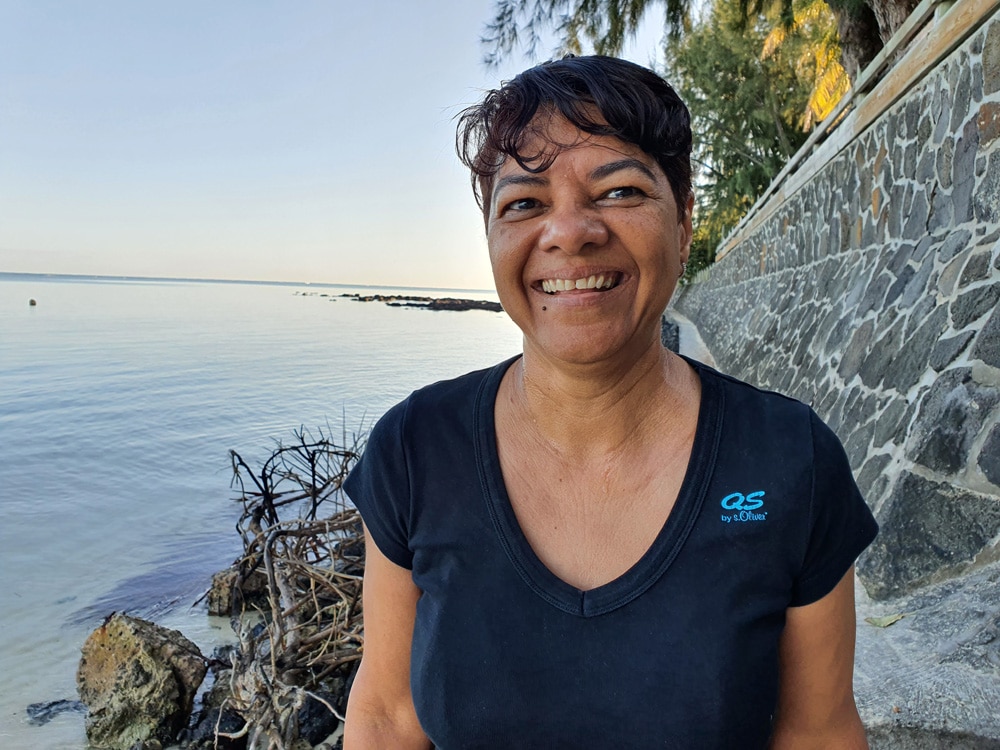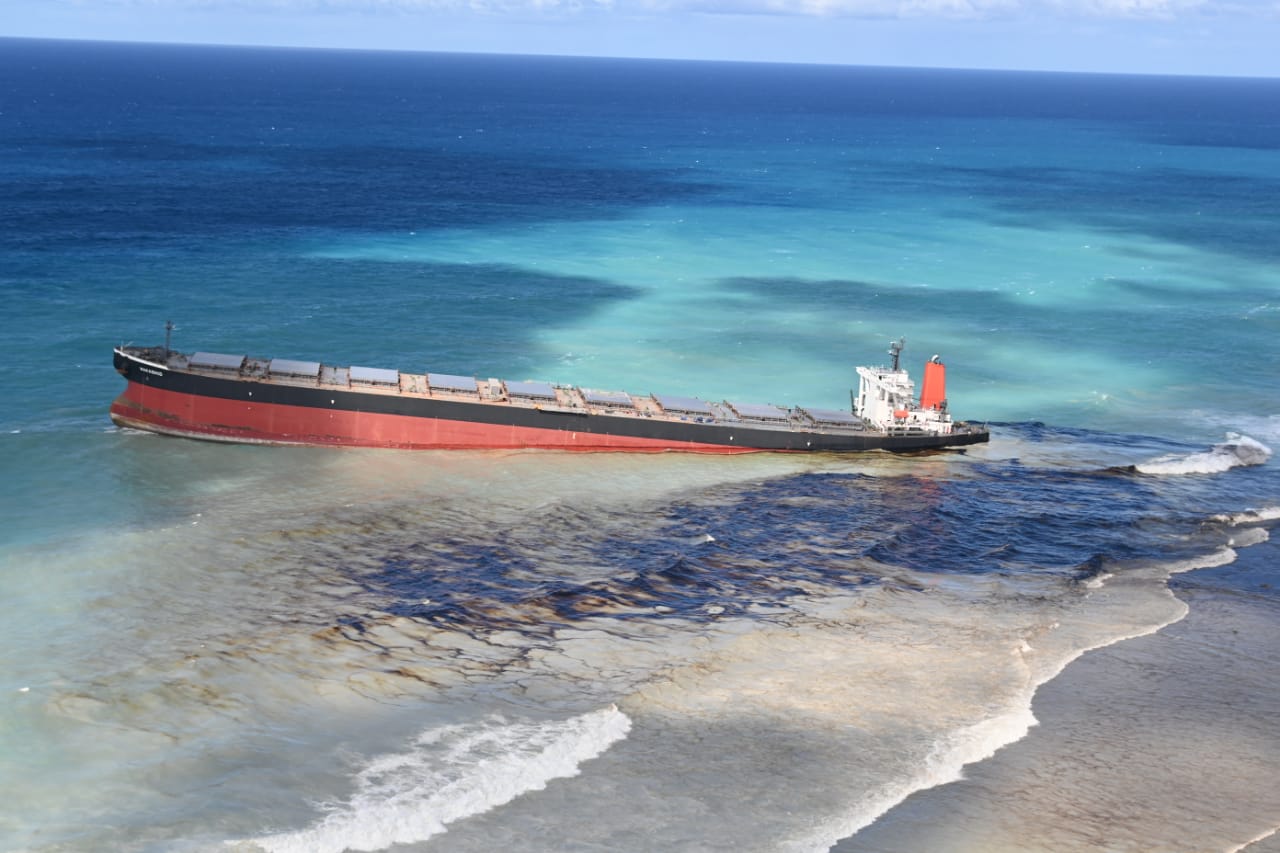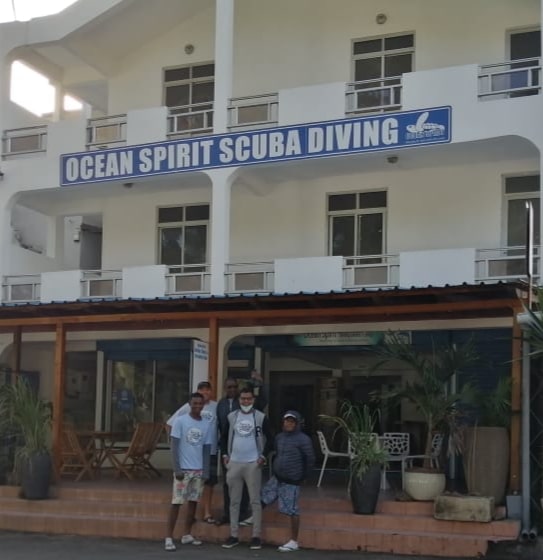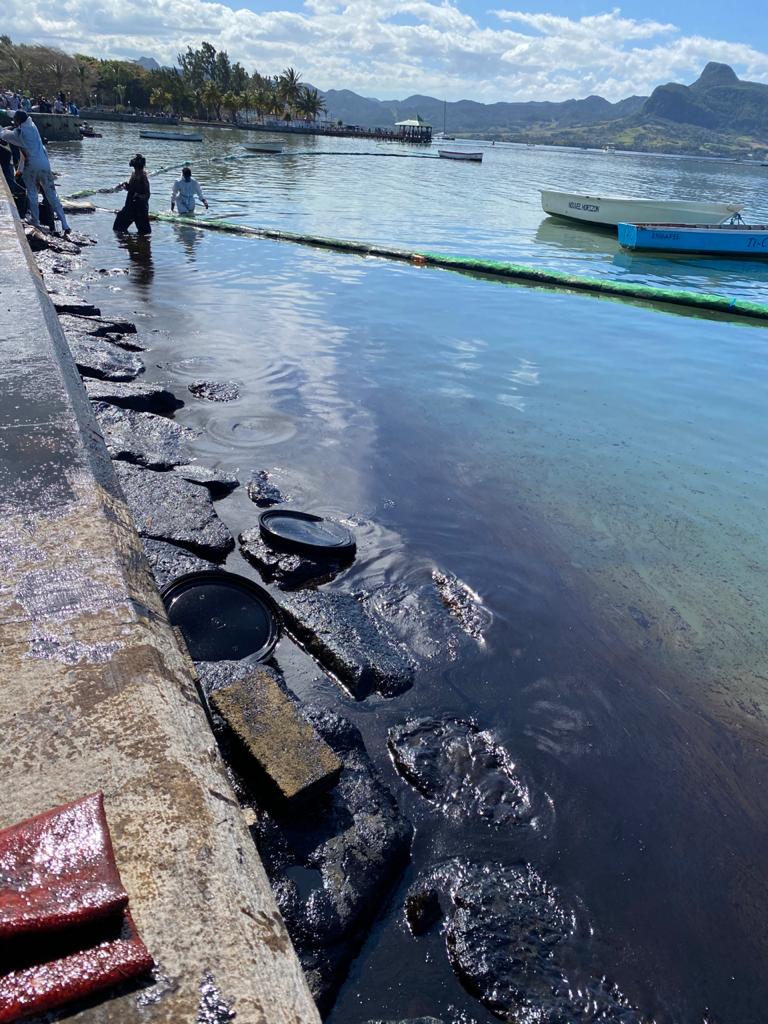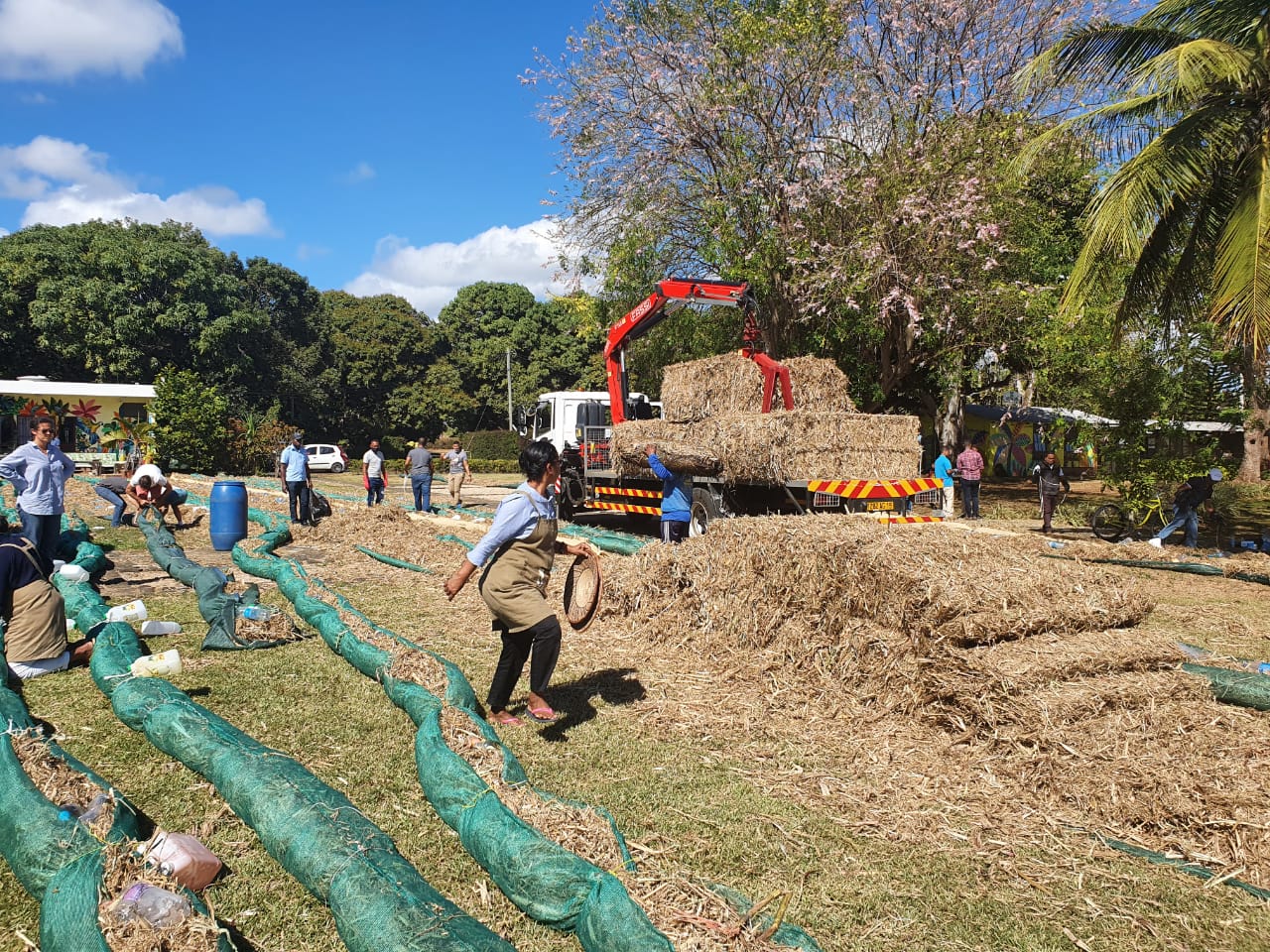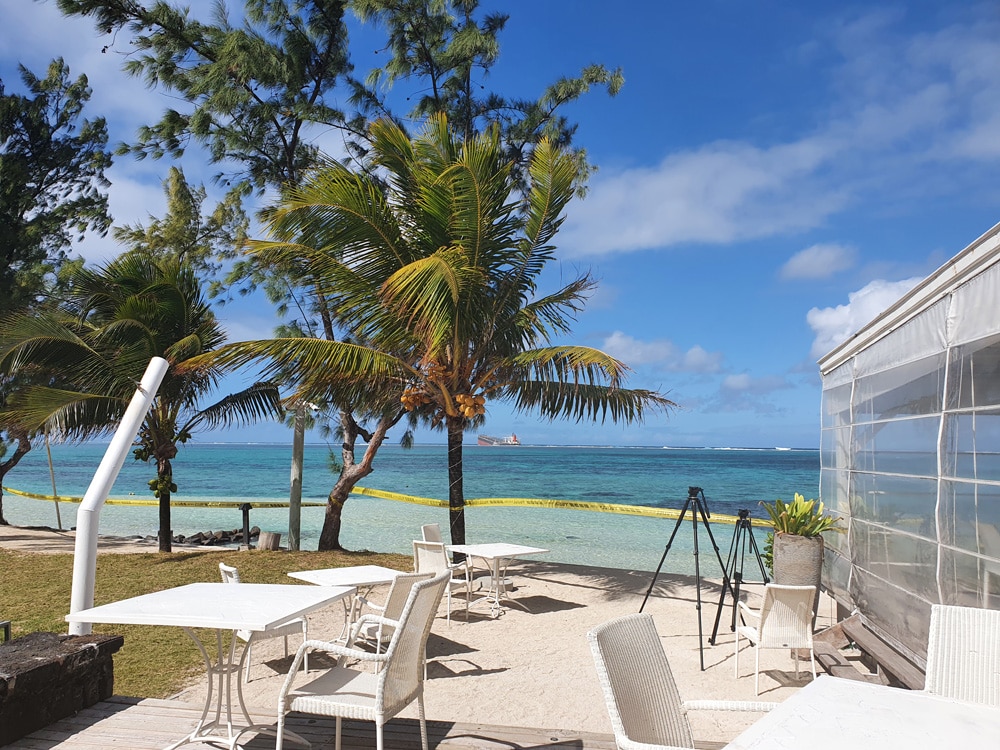Marine Life & Conservation Blogs
The Wakashio Oil Spill in Mauritius – a report from Jill Holloway
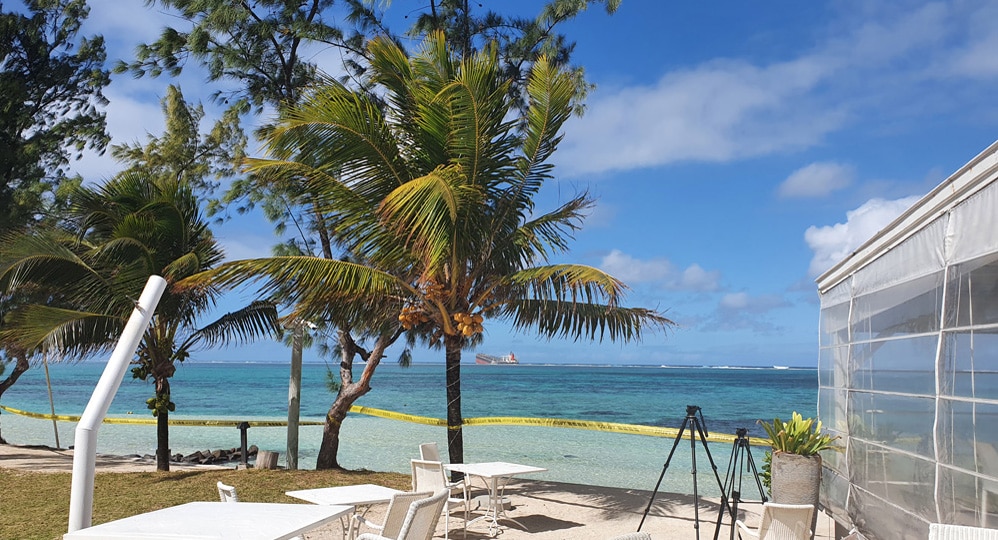
When a woman cuts her hair to save her Island you know it’s got to be a really special place. Two women that I know have both made this sacrifice.
Monica could sit on her hair. Now its gone into the bales to soak up oil. Hair absorbs eight time its weight in oil, and when there are potentially 4000 tons about to pour onto your coastline, sometimes it’s the only thing you can do to help. All over Mauritius women have been cutting their hair to contribute to the sugar can trash and bagasse being packed into home -made floating barricades to contain the catastrophic effects of bunker oil pouring from the hull of the Wakashio.
The WAKASHIO is a 200,000 ton bulk carrier 300 meters long. It is registered in Panama. Built in 2007 it is the responsibility of Nagashiki Shipping of Japan. It’s a 21st Century ship with ultra modern technology. No way should it hit the reef. And it was 200 nautical miles off course from Singapore to Brazil. (https://www.fleetmon.com/maritime-news/2020/30533/major-oil-spill-mauritius-island/)
This 300 metre bulk carrier ship was mysteriously run aground in the extreme south of Mauritius on the reef at Point Desney listed under the Ramsar Convention on Wetlands of International Importance. I got a call from the Coast Guard who tell me when anything that may affect diving.
That will be an expensive salvage job for someone, who will do it? I asked. Marine salvage is big business, and the ship was huge, and salvage fees increase with the size and value of the ship. The salvage crew get a percentage of the value of the vessel, paid directly by the insurers.
No no Madame, the owners do not want anyone to salvage it. They will send a crew from Holland in about three weeks. This is a bulk carrier. At the end of 2 weeks the ship was still there, and the hull, trapped on the coral reef, breached and black noxious bunker oil began to out onto the reef. The oil spread incredibly quickly, and the Mauritian Government call for National Mobilization while our beautiful turquoise ocean turned black.
This video is cobbled together from the early images flashing around the island, while everyone panicked at the possibility that we would wake up with our beaches covered in oil. Team Ocean Spirit went down on Saturday and spent the entire day deploying bales. Kevin our Dive Centre Manager came back shaken and shocked.
It’s chaos he said. How do they expect to contain that mess with sugar cane, trash, women’s hair, and shade cloth? He said that the stink was horrific, that the oil sludge was toxic, and that the guys should not go down on Sunday but recover from the fumes.
Under the control of the Prime Minister of Mauritius, the MSDA (Mauritian Scuba Diving Association) NGO Reef Conservation, Business Mauritius, The Chemical Industry, NGO Wildlife Mauritius, the Beach Authority, and health officials Mauritius leaders met to strategize. The sugar industry offered cane trash and bagasse. Construction companies offered miles of shade cloth. Clothing manufacturers provided absorbent cotton fabric and the fishing industry supplied miles of fishing line. The Health officials provided masks and gloves, and the Eco Sud guys guided the teams on safe retrieval of the oil.
The local population did the rest. All over the island, people stitched bales and stuffed them with oil absorbent material. Small fishing boats carried the barrages out to the oil covered ocean.
Others went down to the affected areas to save the fish trapped in the oil coated mangroves. Ile Aigrettes was severely affected, and I have not been able to get there to look at the effect of the oil. Volunteers collected all the birds off the Island and brough them to safety.
On Monday I was asked to go to Resiglas the boat builders swimming pool manufacturers and septic tank builders who provided drums to store the oil. They had cut a styrene block to support one of the pumps and asked me to take it down to Mahebourg. I was dreading this and expected to see chaos and oil. Unbelievable within 2 days the bulk of the oil around Point Desney and Mahebourg had been contained, removed and clean barriers placed. The French had sent a ship, 2 planes full of pumping equipment, a team of pollution control specialists and drones and helicopters to identify spots in need of help.
Point Desney, deceptively clean and calm with Wakashio posing in the distance. While we cannot predict the full impact this has had on the corals, the ocean is now almost clean. Thanks to teamwork and a small amount to the ladies of Mauritius who shaved their heads.
- Words: Jill Holloway
- Copyright Ocean Spirit: www.osdiving.com
Blogs
Saba’s Plan for a Coral Comeback

Saba has an exciting new initiative to restore its coral reefs. This new project, running from 2024 to 2026, will focus on reviving key species in the island’s underwater ecosystems. With a collaborative team from the Saba Conservation Foundation (SCF) and Van Hall Larenstein (VHL) University of Applied Sciences, the project aims to restore both corals as well as sea urchins.
This initiative is centered around coral restoration, specifically reviving two essential coral species—staghorn coral (Acropora cervicornis) and elkhorn coral (Acropora palmata). By mapping parent colonies and using a technique known as coral gardening, SCF will create and maintain coral nurseries. These corals will eventually be outplanted at key reef sites around Saba to not only expand the number of coral colonies, but also provide essential fish habitat. The project focusses on installing coral nurseries, training staff with the newest techniques and starting with the restoration of key reef sites.

Reef Cleaners to the Rescue
It’s not just corals getting a makeover—this project also shines a spotlight on the essential role of grazers, particularly sea urchins. VHL is leading the charge on cultivating and restocking two key sea urchin species, West Indian sea egg (Tripneustes) and long-spined sea urchin (Diadema), known for their ability to keep algae in check. By removing algae, which are important competitors of corals, they help the coral to thrive. By restoring these “reef cleaners,” Saba’s project will give corals the breathing room they need to grow, setting the stage for a healthier, more balanced marine ecosystem.
From Tiny Urchins to Big Goals
The project will be funded as part of the Dutch Government’s Nature and Environment Policy Plan (NEPP) 2020-2030 for the Caribbean Netherlands, a comprehensive initiative aimed at conserving and restoring the unique natural environments of the Dutch Caribbean islands, including Saba, St. Eustatius, and Bonaire. This project is aiming for big milestones: build and maintaining coral nurseries, the expansion of urchin cultivation facilities, and the creation of a dedicated research center. By 2026, the project hopes to ramp up coral and grazer restoration, with the ultimate goal of extending these efforts across the Dutch Caribbean. By linking local initiatives to broader regional goals, Saba’s restoration project promises to leave a lasting impact on both the environment and the community.
Find out more about the DCNA at dcnanature.org.
Blogs
Reef-World marks two decades of marine conservation: strengthening impact amid coral reef threats

Empowering ocean stakeholders to tackle future challenges and ensure the survival of coral reefs and humanity
2024 marks the 20th Anniversary of The Reef-World Foundation’s tireless efforts for global coral reef conservation. The UK charity is the international coordinator of the UN Environment Programme’s Green Fins initiative, known as the leading voice in sustainable marine tourism. Today, Reef-World released its 2023-2024 Impact Report outlining a year of substantive growth and impact in its marine conservation programmes.

Impact Report Highlights:
- Impressive improvements in environmental behaviours to protect coral reefs by the marine tourism industry as the global participation of Green Fins increases.
- Continued capacity building for government and NGO staff to effectively manage marine tourism activities in Asia, Caribbean and Red Sea regions.
- For the first time in Green Fins’ 20-year history, tourism operators have achieved ‘Best Environmental Performer’ status by demonstrating the lowest possible environmental impact in their environmental assessments. In 2024, three dive operators achieved this challenging milestone.
- Significant increases in global participation of Reef-World’s innovative digital conservation tools.
- 138 Green Fins dive operator members achieved the strict threshold for PADI Eco Center recognition.
- Developed four new educational materials and translated two into 16 languages to support the marine tourism industry in achieving sustainability targets.
- Establishing a new Reef-World Development strategy and recruiting new roles – Development and Programmes Managers.
- Reef-World’s board welcomes new Chair and Trustees strengthening organisational leadership.

Reef-World started as a one-person mission to inspire and empower communities to act in conserving and sustainably developing coral reefs and related ecosystems. Today, the team of 12 continues to meet this mission by inspiring and empowering the global marine tourism community to be exemplary sustainability leaders by using the Green Fins guidelines and tools to simultaneously use and protect the world’s precious reefs.
In April 2024, the fourth global coral reef bleaching event was confirmed. Reef-World’s work has never been more urgent as the marine environment, and the benefits they provide humanity, continue to be eroded by global threats. The reduction of local threats, like those from the marine tourism industry, is an essential step to ensuring a future where coral reefs survive and continue to support the millions of people who depend on their ecosystem benefits. Reef-World’s work buys time for coral reefs and related ecosystems to be resilient to the impacts of global threats.
“Right now our corals are facing the greatest fight of their existence as the terrifying predictions of the steps towards their complete extinction are starting to come true. But all is not lost, reefs are resilient and they have existed on this planet for millions of years. We must take action now, to buy time for reefs by reducing threats facing them and allowing them to react and adjust to the changing environment they need to survive in.” – Chloe Harvey, Executive Director
Looking Forwards:
Like coral reefs, the Reef-World team needs to be resilient in the face of the complex challenges of the conservation sector. Reef-World has invested significantly in developing a Culture of Care to ensure the well-being of its team on a daily basis, continuing to be an exemplary employer to enable its team to best achieve the mission for coral reef conservation.
With the foundations of a Culture of Care and organisational development laid, Reef-World is emerging from the end of a natural organisation life cycle, that brings the challenges of growth and scale, stronger than ever. With a new strategy in place to generate much needed resources, Reef-World is excited for the opportunities to leap forward, continue to scale our impact and lean into new innovations and untapped opportunities for marine conservation.
We continually strive to become a forward-thinking organisation that delivers on our goals and commitments to our stakeholders with fresh approaches and not being afraid of steering away from a “normal approach.” This approach is not only applied to our programmes of work but also internally and carries over to our Culture of Care for our team.” — JJ Harvey, Operations Director

The Reef-World Foundation is immensely grateful for the continued support of its grant funders: UN Environment Programme, IUCN’s Blue Natural Capital Financing Facility, Adventure Travel Conservation Fund, PADI Aware Foundation, and World Nomads Footprints Program.
Reef-World would also like to express its gratitude to international partners whose vital support has resulted in significant tangible benefits for our work and mission: PADI; Professional SCUBA Schools International (PSS); Explorer Ventures; 1% for the Planet; ZuBlu; Snorkel Venture, GSTC; Dive O’Clock; Seven Dragons; DiveAssure and Eco Beach, without whom these achievements would not be possible.
The full 2023–2024 Annual Impact Report is available on Reef-World’s website.
-

 News2 months ago
News2 months agoIconic SS United States to become the World’s Largest Artificial Reef
-

 News3 months ago
News3 months agoBook Review – 52 Assignments: Underwater Photography
-

 Gear News3 months ago
Gear News3 months agoDYNAMICNORD – New German diving brand enters the British market
-

 News3 months ago
News3 months agoExploring Cenote El Pit: A Diver’s Dream
-

 Gear News3 months ago
Gear News3 months agoTry BARE drysuits (and maybe even win one!) this Friday with Sea & Sea at North West Dive Fest
-

 Marine Life & Conservation3 months ago
Marine Life & Conservation3 months agoBook Review: Coral Triangle Cameos
-

 Blogs2 months ago
Blogs2 months agoDive the Egyptian Red Sea this Autumn with Regaldive
-

 News3 months ago
News3 months ago2024 Ocean Art Underwater Photo Competition Announced


